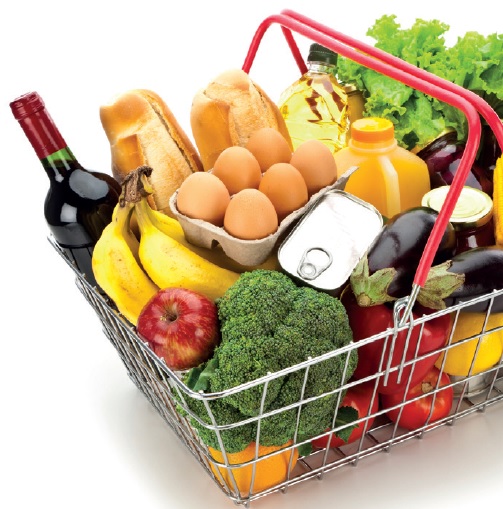Here's how Brexit is affecting our diet
27th April 2017 10:32
by Marina Gerner from interactive investor

As we know, inflation is upon us, and it’s on an upward trend.
Once a month, the Office for National Statistics (ONS) determines the price of a basket – think of a shopping basket – of goods and services typically bought by UK households. This is used to calculate the consumer prices index measure of inflation.
I wanted to peek inside that basket of goods to see what was in it, so I sifted through a large ONS data set. How do they measure the price of, say, tea bags?
Instead of choosing one particular brand of brew, they calculate the average price across various makes of tea bag. For this purpose, they send out a group of people known as ‘the collectors’, who visit every shop in a certain area that sells tea bags.
Their task is to select an item they think best represents the store. Usually this is the item that takes up the most shelf space. This way, not only brands but unbranded goods are included, as are shops ranging from national chains to one-man bands.
Next, I looked at what has happened to the price of various foods since the Brexit vote in June 2016. Our tea bags have gone up in price from £1.93 to £1.98 per 250g on average.
But it’s the price rises among salad ingredients that stand out. Tomatoes have gone up from £2.01 a kilogram to £2.21. A cucumber has gone from £0.48 to £0.59 and a dull iceberg lettuce from £0.51 to £0.80. A kilo of grapes has gone from £3.80 to £4.19.
A lot of our five-a-day fruit and vegetables are imported from the EU, so this trend is likely to continue.
As we walk the aisles of the supermarket choosing the foods for our basket, we risk becoming poorer – and fatter – as a result of Brexit.
This article was originally published in our sister magazine Money Observer, which ceased publication in August 2020.
These articles are provided for information purposes only. Occasionally, an opinion about whether to buy or sell a specific investment may be provided by third parties. The content is not intended to be a personal recommendation to buy or sell any financial instrument or product, or to adopt any investment strategy as it is not provided based on an assessment of your investing knowledge and experience, your financial situation or your investment objectives. The value of your investments, and the income derived from them, may go down as well as up. You may not get back all the money that you invest. The investments referred to in this article may not be suitable for all investors, and if in doubt, an investor should seek advice from a qualified investment adviser.
Full performance can be found on the company or index summary page on the interactive investor website. Simply click on the company's or index name highlighted in the article.